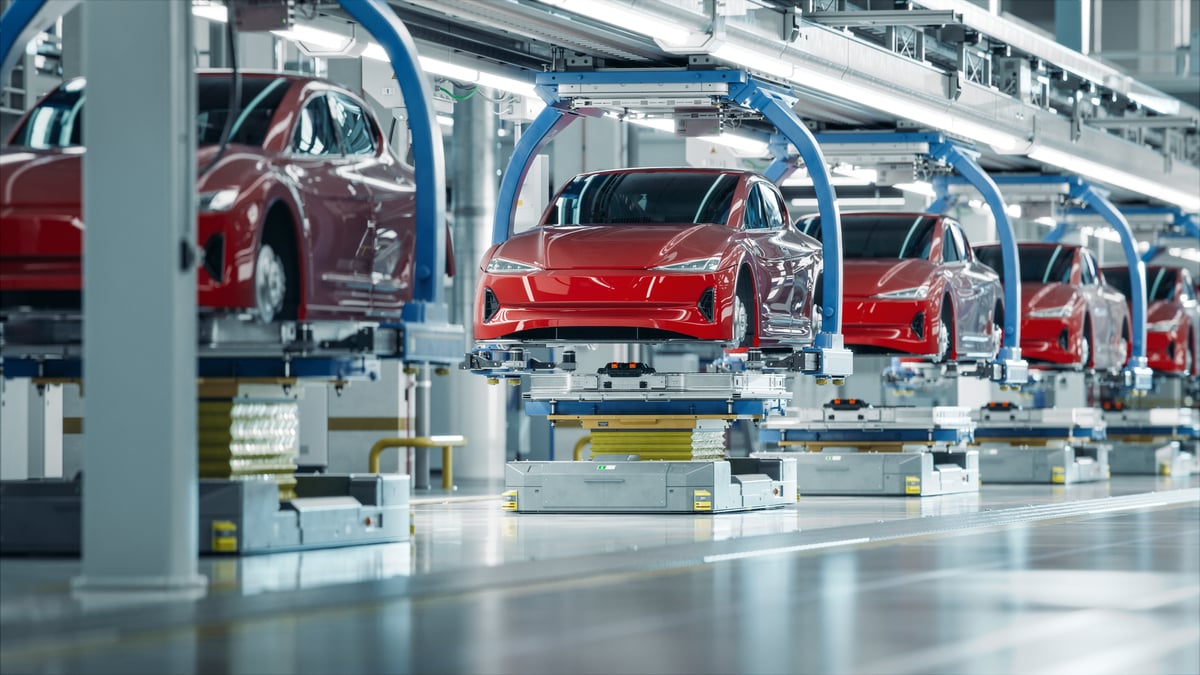Don't look now but Lucid Motors (LCID +0.00%) just received another boost of momentum, shooting the stock over 40% higher Thursday. The driving force behind its move higher was blasted across headlines: Uber Technologies (UBER 0.49%) to invest $300 million in Lucid to form robotaxi partnership. The great news for investors is that aside from the phenomenal opportunity it presents, is that it could be the last thing it needs to prove to Wall Street. More on this in a second.
But don't overlook the second announcement Lucid made Thursday regarding a potential reverse stock split. Let's dive into both developments and what they mean for investors.
Show me the money!
Uber is the driving force behind this three-headed monster partnership. The deal calls for a new robotaxi service that will take an industry-leading, software-defined vehicle of Lucid's new Gravity SUV, infuse it with Nuro's level 4 autonomy system, and deliver a robotaxi service using Uber's vast global network and fleet management.
Uber is targeting a fleet of 20,000 or more Lucid vehicles over the next six years, and the first Lucid-Nuro robotaxi prototype is already operating autonomously on a closed circuit course at Nuro's Las Vegas operations.

Lucid, Uber, and Nuro's robotaxi prototype. Image source: Lucid Motors.
This deal is big news for Lucid, and the 20,000 vehicles evenly spread over six years is still massive considering the automaker delivered just under 6,500 vehicles for the first half of 2025 and hopes to deliver roughly 20,000 for the full year after accelerating production for the Gravity SUV as we speak.
But this development goes beyond the vehicle demand, and it goes beyond the liquidity Uber's $300 million investment represents. This could finally prove to Wall Street that Lucid not only has the advanced technology needed to produce high-quality vehicles but demand for its technology from other companies.
Lucid investors should have been insanely jealous when rival EV maker Rivian inked a partnership with Volkswagen to supply the former's technology and software stack for use in Volkswagen vehicles in a deal worth $5.8 billion.
"This investment from Uber further validates Lucid's fully redundant zonal architecture and highly capable platform as ideal for autonomous vehicles, and our industry-leading range and spacious well-appointed interiors, as ideal for ridesharing," said Marc Winterhoff, interim CEO at Lucid, in a press release. "This is the start of our path to extend our innovation and technology leadership into this multi-trillion-dollar market."

NASDAQ: LCID
Key Data Points
Reverse stock split?
Another development that was mostly overlooked thanks to the bombshell Uber and Nuro partnership, perhaps by public relations' design, was that Lucid filed a preliminary proxy statement with the Securities and Exchange Commission (SEC) to enact a special stockholders' meeting to authorize a reverse stock split of the company's class A common stock at a ratio of one-for-ten (1:10).
Essentially, Lucid will consolidate its shares, and investors will receive one new share for every 10 of the old shares, and the price per share will multiply by 10. The value investors own is the same, and Lucid's market capitalization won't change; it'll simply boost the trading price of Lucid shares.
Generally, a reverse stock split is not looked at favorably by the market, and oftentimes it's a company in financial distress, with a falling stock price and in danger of being delisted by a major stock exchange. In this case, with Lucid trading above $3 currently, the company isn't in immediate danger of being delisted as it would need to trade below $1 for 30 consecutive trading days.
For Lucid, this is simply an attempt to make its stock more attractive to large investors that often have a minimum stock price they're allowed to invest in. Many institutional investors and mutual funds have this.
What it all means
Thursday was a very good day for Lucid. It proved it can package its technology for new revenue streams and inked a highly valuable investment worth $300 million from Uber, all while getting its product out in front of more and more consumers. This is exactly the type of deal Lucid investors were hoping for even if it isn't nearly as lucrative as Rivian's joint venture with Volkswagen. Furthermore, while the market generally disapproves of reverse stock splits, Lucid's doesn't appear to raise the typical red flags.
As always, Lucid remains a high-risk, high-reward stock, and it isn't for the faint of heart as big swings such as Thursday's are sure to take place over the next few years.






